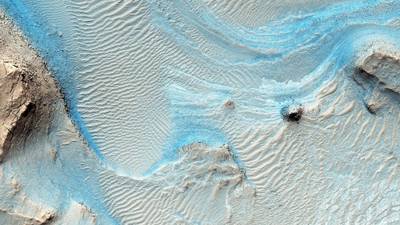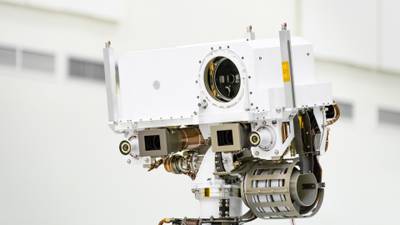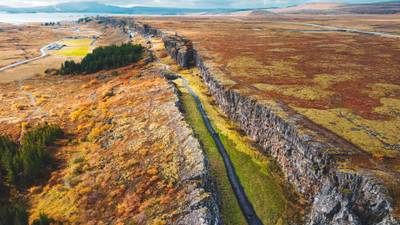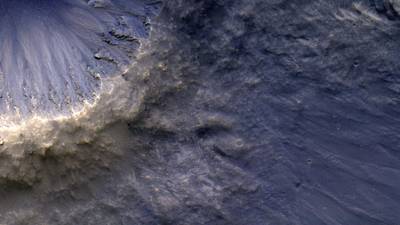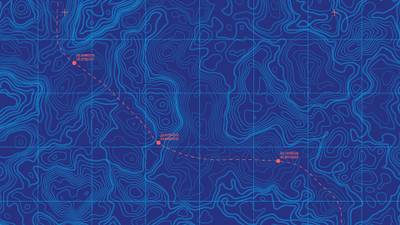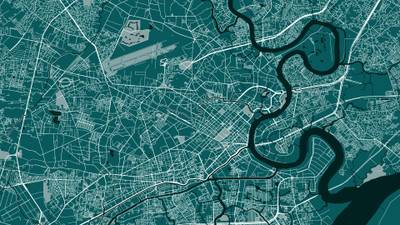Join a near-surface geophysics course you can study 100% online.
Develop your understanding of geophysical techniques, and learn to apply them to solve near-surface environmental problems.
In this Masters-level online short course, you’ll get an introduction to the methods of collecting near-surface geophysical data.
You’ll cover both the theory and practical aspects of near-surface geophysical methods, building your skills in:
- basic processing, modelling, and inversion of geophysical data using popular industry software
- critical analysis and interpretation of geophysical models
- multi-method validation
- selecting the best methods to investigate particular environmental problems.
Who can join this online near-surface geophysics course?
This distance-learning course is aimed at graduates and professionals within:
- geophysics
- environmental engineering, and
- civil engineering.
The course is also valuable for academics involved in research or teaching in this area.

Build credits towards a Masters degree
This short course is part of online:
You can use the credits you earn with this short course towards this MSc qualification.
What you’ll study
In this course, you’ll cover the following sections and topics.
Section 1
A general introduction to near-surface geophysical data acquisition, including:
- survey design
- fieldwork safety
- quality control
- processing and reporting.
Section 2
The basic theory and practical aspects of near-surface geophysical data collection.
- Physical basis
- Field implementation (1D, 2D, 3D, time-lapse)
- Processing and interpretation of electrical and electro-magnetic methods, including: resistivity, induced polarisation, self-potential, frequency and time domain EM induction, magnetotellurics, magnetic resonance
- Ground penetrating radar (GPR)
- Passive magnetics
- Gravity and seismic refraction.
Section 3
Case studies and examples of modern applications of near-surface geophysical methods.
You’ll look at how these methods have been used to assess and monitor a range of environmental processes, including:
- hydrology and water resources
- subsurface remediation
- mining exploration and post-mine management
- geotechnics and civil engineering
- natural hazards
- geothermal exploration
- glaciology.
By the end of this online geophysics course, you’ll be able to...
-
Demonstrate understanding of the surveying techniques and procedures used to acquire near surface geophysical data on land and at sea.
-
Provide an overview of the capabilities and limitations of modern near surface geophysical techniques for solving broad environmental problems.
-
Provide an overview of the theory, principles, and practice of near surface geophysical methods, including seismic, gravity, magnetic, electrical and electromagnetic methods.
-
Plan and undertake your own geophysical experiments focusing on a variety of near-surface geophysical targets.
Choose the University of Aberdeen for online geophysics courses

You’re in expert hands
Founded in 1495, we’re an ancient UK university that’s been delivering online teaching for decades.

Learn anywhere
On smartphone, desktop and laptop, with no need for a student visa.

20% alumni discount
University of Aberdeen alumni get 20% off fees for this online course.
How you’ll study
Online learning
This near-surface geophysics course is delivered 100% online.
You can learn with us anywhere, no student visa required, and manage your study hours to suit you.
Your teaching
This course is taught at Masters level.
Teaching is delivered through MyAberdeen, our online Virtual Learning Environment (VLE). It holds all the materials, tools and support you’ll need in your studies. Take a look around MyAberdeen.
You can access your learning materials on computer, smartphone and laptop, 24 hours a day. You’ll find a range of online resources available, including:
- videos
- video lectures
- live online practical sessions
- slide shows
- discussions boards with your tutors and peers
- online access to our award-winning Sir Duncan Rice Library.
Live online sessions
This course features a series of practical sessions that take place live online.
Your tutors
This course is delivered by our School of Geosciences.
You’ll learn from an internationally experienced team of research geophysicists and industry professionals.
Industry input
This course features a series of industry guest lectures.
The course is also part of several degree programmes that have their content reviewed by an Industry Advisory Board.
This board is composed of industry geophysicists from a range of sectors, including environmental, to ensure your learning is current and industry-relevant.
This course is assessed online.
You’ll be assessed throughout your course via your coursework:
- Five practical reports, each worth 20% of your final course grade.
Live practical sessions
This course features five online practical sessions. Each practical is live and scheduled to last for a maximum of three hours.
Dates and times for practical sessions will be organised at the start of the course.
The introduction to each practical session will be recorded so that you can access these after they have taken place.
Duration and study hours
This four-week course totals approximately 150 hours of study and assessment time.
That’s around 37.5 hours per week.
This is an indicative guide to the time required for a typical student at this level to achieve the learning outcomes. This includes time for independent study, as well as teaching and assessments.
You can largely set your own study hours each week to cover the materials. MyAberdeen is available 24/7, so you can log in and study when it suits you.
Activities at fixed times
There will be some activities scheduled at a fixed time, such as your live online sessions, or assessments with deadlines. But otherwise, you can access and work through the course at your convenience.
Our first-class support structure will ensure that you aren’t alone in your studies. You’ll have contact with your tutors via MyAberdeen. You can use social media and discussion boards to chat with your fellow students too.
We provide a wide range of services to support you in your studies and beyond:
- Careers and Employability Service
- Disability support
- IT support
- Library support
- Student Support Service – help with finances, wellbeing and non-academic issues
- Student Learning Service – study support, with advice sessions available
- Aberdeen University Students’ Association (AUSA) – run by students for students
- Toolkit – clever apps and free training that can make your study life easier
Wherever you are in the world, you’ll feel part of our very special Aberdeen learning community.
Your course coordinator

Dr Jean-Christophe Comte
Jean-Christophe is a Reader in Hydrogeophysics in our School of Geosciences.
Jean-Christophe’s research interests include quantitative hydrogeology, near-surface geophysics, environmental modelling, and groundwater security.
View Jean-Christophe’s profileWhere this will take you
Towards a Masters
You’ll earn 15 credits at Masters level (SCQF Level 11) with this course. You can use these credits towards our online:

Masters in Subsurface Energy Engineering
Develop the advanced skills in energy engineering, geo-energy resources and storage that you need to work with subsurface energy systems.
View MSc Subsurface Energy EngineeringCareers
In this course, you’ll gain skills in near-surface geophysics that are valuable across a range of sectors and career paths.
Your learning can help you to progress within or towards roles in:
- energy transition
- earth resources exploration
- renewable energy
- environmental sciences
- geophysics research or PhD study.
Continuing Professional Development (CPD)
Your employer or professional institute may recognise this course for CPD hours. Talk to your employer or institute to find out more.

Free career support
Access our free careers service while you study.
- 1:1 appointments
- CV checks
- Interview prep
- Job opportunities
Entry requirements
Entry requirements
We welcome students from all over the world.
This course has no formal entry requirements. You do not need to provide proof of your qualifications.
But you do need to check the entry guidance above to understand the level of teaching delivered, to decide if this course is right for you.
If you do not have qualifications from the UK, check the equivalent teaching level for your country.
Visa requirements
You do not need a student visa to study online with us.
English language requirements
Teaching is delivered in English.
You do not have to provide proof of your English language skills to join this course. But we want to make sure that you can use English well enough to study successfully.
Recommended level of English
For this course, we recommend the following level of English language proficiency.
These are our Postgraduate Standard requirements, and these are minimum scores.
IELTS Academic, IELTS UKVI Academic, or IELTS Online (not IELTS Indicator or IELTS General Training)
- 6.5 overall
- 5.5 for listening, reading and speaking
- 6.0 for writing
TOEFL iBT or TOEFL iBT Home Edition
- 90 overall
- 17 for listening
- 18 for reading
- 20 for speaking
- 21 for writing
- TOEFL DI code is 0818
Cambridge English: B2 First, C1 Advanced, or C2 Proficiency
- 176 overall
- 162 for listening, reading and speaking
- 169 for writing
LanguageCert Academic / LanguageCert Academic SELT
- 70 overall
- 60 for listening, reading and speaking
- 65 for writing
Oxford ELLT Digital – English Language Level Test Online
- 7.0 overall
- 5.0 for listening, reading and speaking
- 6.0 for writing
PTE Academic (online test not accepted)
- 62 overall
- 59 for listening, reading, speaking and writing
Skills for English: SELT
- B2 pass with merit
Duolingo – tests taken from 1 July 2024 onward
- 120 overall
- 95 for listening, reading and speaking
- 105 for writing
University of Aberdeen English Pre-sessional Programme (PSE)
- Pass
- Valid for one year. Refresher can be offered if out of date
Pre-sessional academic English preparation programmes undertaken at other UK universities
- Pass at an equivalent of 6.5 (C1)
- B2 in all four skills
- Certification must be within one year prior to the start of your course
For full information about language requirements, see our English Language Requirements page.
You will need access to:
A computer (PC, laptop or Mac) with an up-to-date operating system
Most teaching materials are smartphone- and tablet-friendly. But we recommend a proper laptop or desktop for completing assignments comfortably.
Reliable internet access
We recommend:
- a wired connection
- a minimum download speed of 2 Mbps so you can take part fully in live sessions.
Speakers or headphones
- We recommend a headset with built-in microphone and earphones if you’re likely to study in an environment with background noise.
- A webcam is optional, but you may like to use one for some interactive sessions.
Software
We’ll give you access to Office365 applications. This means you can use online versions of Microsoft Word, Excel, PowerPoint and OneDrive and install these programs on up to five personal devices.
If your course requires specialist software, we’ll provide you with access to this and a licence that lasts throughout your studies.
See our detailed IT requirements for more information.
When you study with us, you can expect a first-class support structure so that you’re never alone in your studies.
But learning online does mean you have to motivate yourself and manage your own time.
Your most important commitment will be time – the time to work through, reflect on and understand your teaching materials.
Before you start a course that involves a high degree of independent study, we recommend looking at the time you will be able to devote to your studies each week:
- Be realistic
- Create a weekly schedule as a guide
If you have any questions about studying online, get in touch with our friendly team. We’re here to help.
Fee payment
Your course fee needs to be paid in full before you start your course.
We accept payment via Visa Debit, Visa Credit and Mastercard.
Ways to save
You may be able to get help funding this course via:
- discounts – if any discounts are available for this course, they’ll appear in the section below
- employer sponsorship – we accept full and partial fee payments from sponsors.
Find out more about funding options.
Student card
All our students are entitled to a University of Aberdeen student card. This gives you access to a range of student discounts around the city and online.
Learning resources
Access to all the books and resources you need are included in your tuition fee. They’ll be made available to you online and you do not have to buy your own copies.
Printing
You may wish to set aside a small budget for printing, depending on how you like to work.
This course has no formal entry requirements. You decide if it’s suitable for you.
The course is delivered at Masters level. For this course, you’d usually have at least:
- a 2:2 UK honours degree (or equivalent) in a relevant subject, ie, Earth Sciences, Environmental Sciences, Physical Sciences, or Engineering, or
- relevant professional experience that supports this level of learning.





